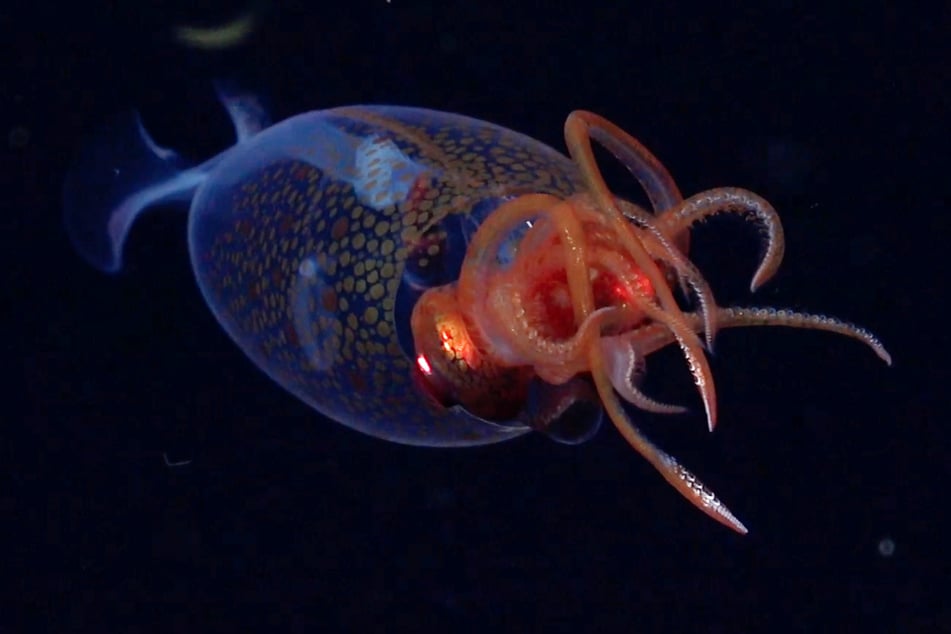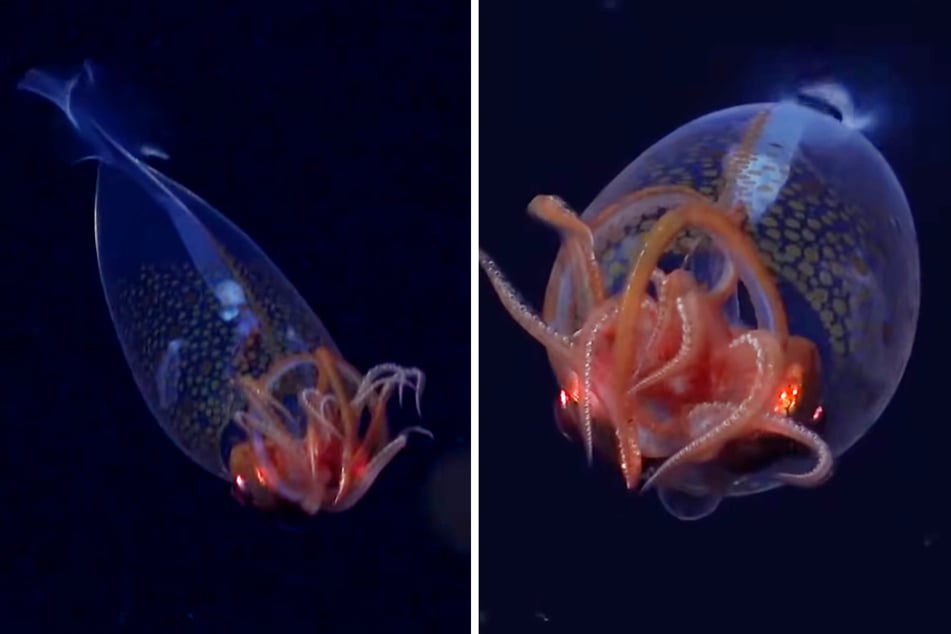Sensation in the deep sea: researchers film giant squid
South Sandwich Islands - These are sensational images. American researchers have filmed a colossal squid in its natural habitat for the first time.

Few animals are larger or more mysterious than this deep-sea dweller.
The colossal squid was only discovered 100 years ago, and now scientists from the renowned Schmidt Ocean Institute have succeeded in filming a juvenile in its natural habitat. The fascinating images were taken at a depth of around 600 meters off the remote South Sandwich Islands in the South Atlantic.
The images show the agile animal swimming around in the pitch-black water. Its eight tentacles appear to have a reddish glow, it has a disproportionately large eye on its head and its transparent body provides a view of its internal organs - the octopus is obviously perfectly adapted to life in the deep sea.
The little we know about this gigantic marine predator comes from carcasses that have washed ashore, stomachs of dead sperm whales that have been examined and sightings of dying animals on the sea surface. Scientists believe that colossal squid can grow to more than seven meters in length and weigh more than 500 kilos, with some estimates of body lengths of up to 12 meters. For comparison: the largest known great white shark, "Deep Blue" , is 6.10 meters long.
However, the animal filmed is significantly smaller. It is a juvenile, just under 30 centimetres long.
Video: Colossus squid spotted
Colossus squid: Will we now find out more about these fascinating deep-sea predators?

Adult colossal squid (Mesonychoteuthis hamiltoni) probably live a predatory life, feeding on large fish and other squid. The techniques they use to hunt, how they reproduce and many other details of their way of life are still completely unclear.
"This is honestly one of the most exciting observations we've made in the history of our field," squid expert Kat Bolstad toldNational Geographic magazine.
"We know that this is the heaviest invertebrate on the planet," says the researcher. She hopes to learn more about these fascinating deep-sea giants.